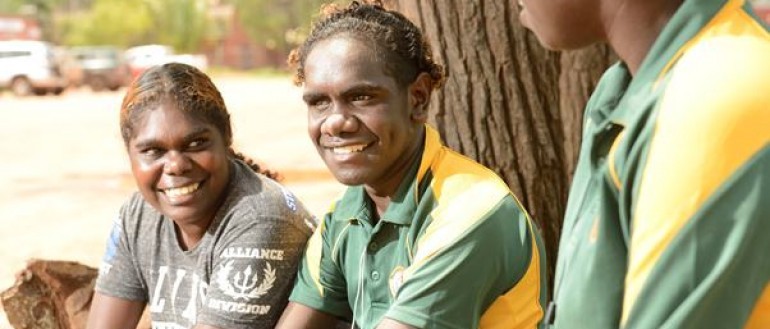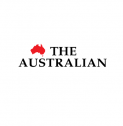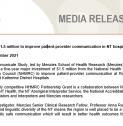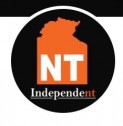Funders:
- Commonwealth Department of Health.
- HOT NORTH
- Central Australian Academic Health Science Centre
Collaborators:
- Telethon Kids Institute
- Cairns Diabetes Centre
- Kimberley Aboriginal Medical Services
- South Australian Health and Medical Research
- Baker Heart & Diabetes Institute
- Apunipima Cape York Health Council
- Aboriginal Medical Services Alliance of the NT
- Western Australian Country Health Service
- Royal Darwin Hospital
- Ord Valley Aboriginal Health Service
- Rural Clinical School WA
-
PODCAST | The Lancet Diabetes & Endocrinology
In conversation with....Angela Titmuss on T2D in First Nations young people in northern Australia.
-
Aboriginal women with gestational diabetes at increased risk of developing type 2 form, new research shows
New research, led by Darwin's Menzies School of Health Research, shows that Aboriginal women who had gestational diabetes during pregnancy, will have a one-in-four chance of developing type 2 diabetes within two and a half years after giving birth.
-
The Australian | Spotlight on Indigenous diabetes crisis
A new study has found Indigenous children in Northern Australia suffer youth-onset type two diabetes at rates at least 10 times higher than previously thought, and possibly above those anywhere else in the world.
-

ABC Darwin | New research shows northern Australia leads the world for type 2 diabetes in young people
She's still learning the rules on-court, but off-court six-year-old Kudin Brogan has already mastered complex systems governing her health and fitness.
-
Youth-onset type 2 diabetes in the NT exceed international figures
The study uncovered what is arguably the highest reported prevalence in any population of youth internationally within the past 25 years and ten times higher than previously reported in Australia.
-
Diabetes in poverty-stricken pregnant women in the NT, highest in the world
Researcher and lead author Dr Matthew Hare said, for these women, poverty stricken and living in some of the most isolated regions of Australia, fresh and healthy food is often not for sale where they live or it is unaffordable.
Aims:
- To develop, pilot and evaluate culturally appropriate diabetes management programs for Aboriginal and Torres Strait Islander children with type 2 diabetes across Northern Australia (Kimberley, Northern Territory and Far North Queensland)
Summary:
Rates of type 2 diabetes among Aboriginal and Torres Strait Islander children and youth are increasing and have been documented as twenty-fold higher than for non-Indigenous youth. Youth-onset diabetes can have serious complications, significantly impairing quality of life and reducing life expectancy. Managing youth type 2 diabetes is challenging: it can be complex and many young people also experience mental health concerns, socio-economic disadvantage, food insecurity and issues associated with remoteness.
Our Northern Australian Youth Type 2 Diabetes Collaboration involves health professionals, policy makers and researchers across Northern Australia. This program of work to improve models of care for Aboriginal and Torres Strait Islander youth with type 2 diabetes has been strongly supported by health services, clinicians and Aboriginal community members, and is funded by the Commonwealth Government.
The main aim of this work is to develop, pilot and evaluate culturally appropriate diabetes management programs for Aboriginal and Torres Strait Islander children and youth with type 2 diabetes across Northern Australia (Kimberley, Northern Territory and Far North Queensland).
Year 1: Co-design models of care (Year 2020)
Co-design with an Indigenous Youth Reference Group (membership from each of the regions), communities, and health services, guided by formative work including an audit of youth diabetes and qualitative work. It will likely include peer-support models (including camps), culturally-appropriate and youth friendly diabetes education, enhanced access to care and increased health professional awareness around the needs of this group.
Year 2: Pilot of enhanced models of care (Year 2021)
A Participatory Action model will enable changes to be made to the design and implementation of models of care. We expect to have shown feasibility of the audit by end 2019 (relating to prevalence in 2017) and will repeat the audit in 2021 (for health service data in 2020), to assess change in prevalence of type 2 diabetes in the same regions. These data will inform health service planning and will contribute to models of care planning.
Year 3: Implementation and Evaluation (Year 2022)
Evaluation of the effectiveness and implementation of the 12-month pilot. Adjustments to models of care and supporting structures will be made (and be relevant to each community) to ensure sustainability of the model. Year 3 will focus on implementing successful models across regions and completing all educational resources for youth.
Key outputs of project:
- Enhanced model of care developed, piloted, evaluated for broader implementation.
- Production of age-appropriate and culturally-appropriate educational resources.
- Describe prevalence rates of type 2 diabetes in Aboriginal and Torres Strait Islander youth.
Further information can be accessed through the project website here.
Chief investigators:
Project manager:
- For more information, contact Anthony Gunther
Project dates:
The Youth Type 2 Diabetes project commenced in 2018 (through seed funding received from HOT NORTH and a Menzies Small Grant). It received additional funding for work in 2019-2020 from the Central Australian Academic Health Science Centre and for a large project across Northern Australia in 2020-2022 from the Commonwealth.
- Titmuss, A., Davis, E., O’Donnell, V., Wenitong, M., & Maple-Brown, L., on behalf of the Hot North Diabetes in Youth Collaboration group. (2021). Youth-onset type 2 diabetes among First Nations young people in northern Australia: a retrospective, cross-sectional study. Lancet Diabetes Endocrinology. doi:10.1016/S2213-8587(21)00286-2.
- Titmuss, A., Davis, E., Brown, A., & Maple-Brown, L. (2019). Emerging diabetes and metabolic conditions among Aboriginal and Torres Strait Islander young people in Australia. Medical Journal of Australia, 210(3),111-113.





